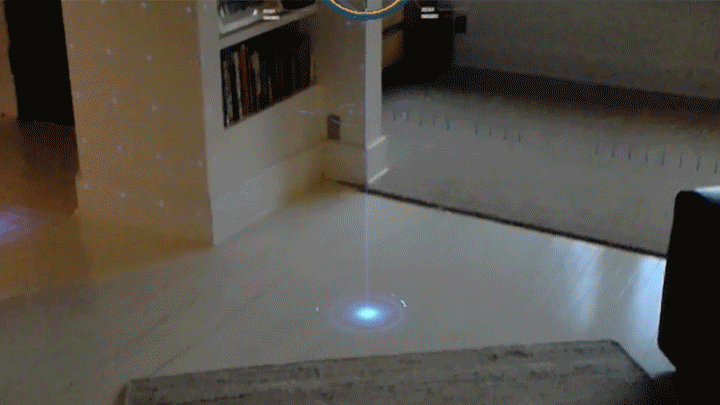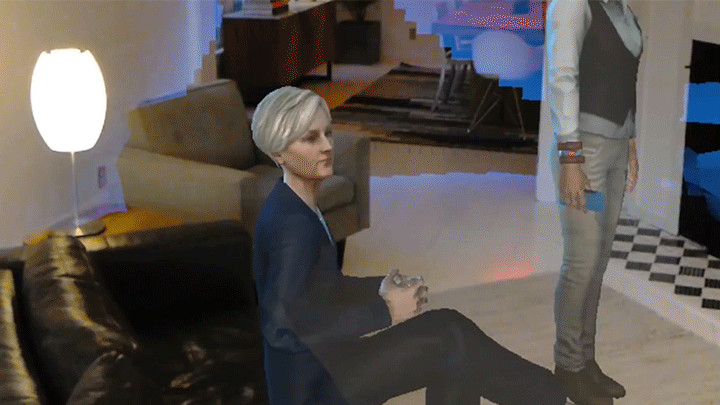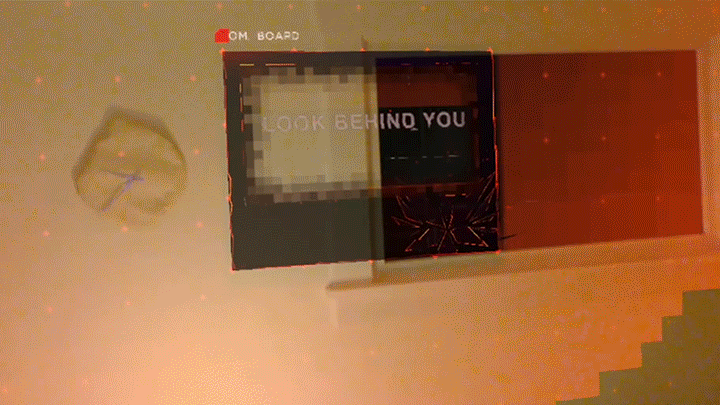CASE STUDY
Mixed Reality Gaming
Creating the world’s first crime-solving video game for the HoloLens
How a last minute pivot shaped Mixed Reality gaming for HoloLens.
Role
Publishing Art Director at Xbox, led the Roadmap Lab
Deliverable
A new way to interact with holographic characters in the world’s first mixed reality crime-solving video game, Fragments.
Our Mission to Solve
Focus testing showed players struggled to see and connect with the 3D characters behind the wall‑mounted plinth, undercutting both usability and the platform’s mixed reality promise. For all of HoloLens’ magic, the experience was missing that spark of connection that makes it memorable.
(Footage from pre-rendered OLC Video)
RESEARCH INSIGHT
Mixed Reality gaming stands apart by blending fantastical gameplay with the player’s real-world environment, creating more memorable experiences through deeper emotional connections to both the story and its unique cast of characters.
Despite being in the 11th hour of development, we knew something was missing:
Breaking the Barrier
Research
Using the PRISM method, we dove Into the research phase, partnering across disciplines and with our partner studio, Asobo, to align on a set of non‑negotiables. These shared filters guided ideation, ensuring every discipline was driving toward the same solution.
Ideation
We leaned into HoloLens’ AI‑driven capabilities to craft a solution where our holographic crime‑solving team could interact seamlessly with real‑world objects, including walls, floors, and furniture, bringing the collaborative moments directly into the player’s space.
Ideation Filters:
Characters respond to the Player
Holograms feel grounded in the world
Player feels like part of a team
Characters don’t get lost at harsh angles
Fits comfortably into the Field-of-View
Fulfills a futuristic fantasy
Working with our internal Publishing Concept Artist, we created a ton of ideas in parallel with Asobo Studio, generating a wide variety of technical solutions that we then stacked against the filter criteria from our Creative Process.
Leveraging AI‑driven world understanding, we built a solution that redefined player / character interaction
Introducing the Holo Call
Building on AI technology that mapped and understood living room surfaces, including furniture, Asobo utilized this tech, allowing characters to interact naturally with the player’s real-world spaces, improving UX and creating a deeper connection to the game’s cast of characters.
We led a secondary motion‑capture session to capture precise angles and human nuances, ensuring characters responded authentically to players while meeting the platform’s technical requirements.
The result was a notable impact on player sentiment
Increase in Overall Satisfaction and Usability Scores
(from 3.8 - 4.4 out of 5)












